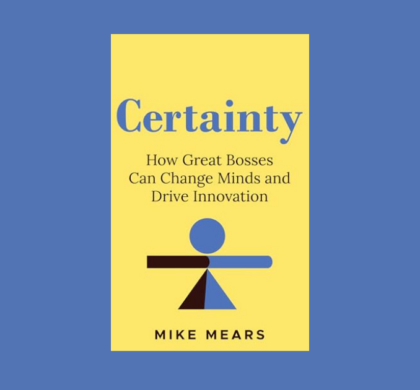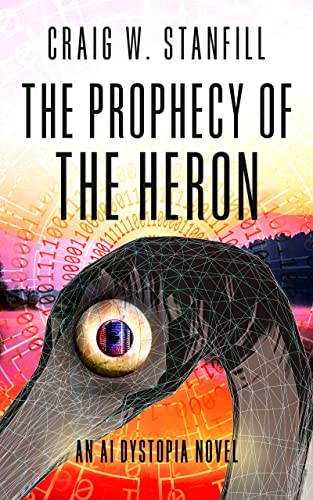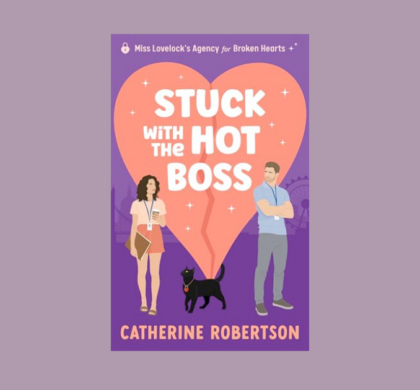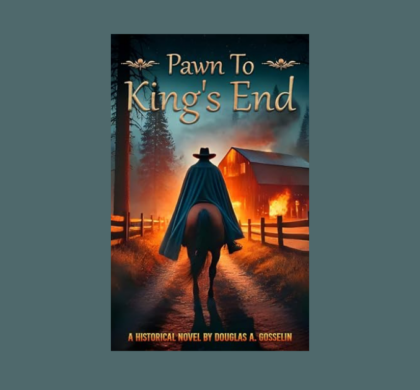Interview with Craig W. Stanfill, Author of The Prophecy of the Heron
07 Dec 2022
What’s the story behind the story? What inspired you to write The Prophecy of the Heron: An AI Dystopia Novel?
The last decade has seen astounding advances in artificial intelligence, with wonders such as driverless cars and language-to-language translation becoming part of our daily lives. But where does it all end? Will AI technology fuel the engines of oppression? Sadly, the answer seems to be ‘yes.’ The AI Dystopia is taking shape around us.
The AIs watch everything you do on social media, and they have the power to silence you. In China it’s even worse, where surveillance is omnipresent, and the AIs can pick your face out in a crowd. Technology companies and governments, both foreign and domestic, collect ever more information on you, your life, and your beliefs, and there are no constraints on the uses to which they may put this data.
I found this worrisome and so, one day, I sat down at the keyboard to bring alive the dark future which we are creating for ourselves and our descendants. The day is coming when the AIs will control everything. But who controls the AIs?
If you had to pick theme songs for the main characters of The Prophecy of the Heron: An AI Dystopia Novel, what would they be?
That’s easy: “I’ll be Watching You,” by Sting. Every move you make Every vow you break Every smile you fake Every claim you stake I’ll be watching you…
This is Kim’s world. The AIs watch everything she does, listen to everything she says. The health monitors implanted in her body betray even her inmost thoughts; a racing pulse or a sharply drawn breath tells them everything they need to know. What makes her happy? What makes her sad? What makes her angry? What makes her afraid? They can’t exactly read her mind, but they usually know what she’s about to do even before she does it.
What’s your favorite genre to read? Is it the same as your favorite genre to write?
I’ve always been a sucker for hard science fiction – Larry Niven, Isaac Asimov, Robert A Heinlein, Arthur C. Clark. I love to speculate about technology, and I think that operating within the bounds of known or foreseeable science keeps the writer honest; you can’t just come up with the ‘magic of the day’ to solve your plot problems!
I’ve written my novels within the confines of hard SciFi. We don’t yet know how to build self-aware artificial intelligences, but at some point this seems inevitable, and the data surveillance technology that forms a backdrop for the entire book already exists. The only aspects of my world which are a bit of a leap are the ‘neural interfaces’ which allow humans to visit the world of virtual reality where the AIs live — but even those are in active development. The world of The AI Dystopia is frighteningly plausible, part of why the book has such a grip on those who have read it.
What books are on your TBR pile right now?
Having now written two novels, I’m going back and delving into the classics of both SciFi and literature, trying to learn from the masters of the craft. Right now, I’m reading a lot of dystopian fiction: 1984, Brave New World, Fahrenheit 451, and The Handmaiden’s Tale. There’s a lot of Heinlein on my list; he is, after all, one of the original grandmasters of the genre.
I’m also going back and reading some of my favorite modern authors: Jorge Luis Borges, Gabriel García Márquez, Hermann Hesse, Vladimir Nabokov. I’m a fan of contemporary fiction, and strive for an approachable yet literary style, rich in metaphor and imagery while remaining a fresh and enjoyable read with memorable characters who are unmistakably human, flaws and all.
What scene in your book was your favorite to write?
I have a lot of favorites, but the one that was the most enjoyable to write was Kim’s introduction to the communal dining hall in District 33. It is a wild and often violent environment, filled to the brim with gangs and factions that do not get along with one another. It forms a backdrop for much of the action in the first third of the book.
Here is the start of it: Kim walked into the wild and raucous dining hall, where a baseball game was blaring away on a hundred video screens. “Out!” screamed the Drabs. “Safe!” screamed the Pretties, and fists went flying before a verdict had even been announced. A dozen black-armored security guards appeared out of nowhere, laying into the brawlers with cruel-looking stun whips that crackled, popped, and sparked as they flew through the air. Order was restored in less than a minute, and the diners went on with their meals as if nothing had happened.
Do you have any quirky writing habits? (lucky mugs, cats on laps, etc.)
Quirky? How about downright bizarre! All my life, I’ve been a night-owl: I’d never be in bed before midnight, and was rarely up before 9:00. And then, I suddenly became a morning person. It’s the weirdest thing, but I wake up, and I have all these crazy ideas crowding into my brain. I’m now usually up about 6:30, and I’m at the keyboard, banging away, by 7:30, 8:00 at the latest. I do a lot of my best writing in the morning, when I’m awake and full of new ideas. I know it seems like a rather pedestrian version of ‘quirky and bizarre,’ but if you’d known me all my life you’d understand just how weird it is for Craig W. Stanfill to be up with the birds!
Do you have a motto, quote, or philosophy you live by?
“Life is about getting it done.” All my life, I’ve been the sort of person who ‘got it done,’ no matter what. Nobody will ever care why you failed. The people who go farthest in life are those who refuse to let themselves be stopped.
If you could choose one thing for readers to remember after reading your book, what would it be?
That freedom is everything, and it must always stand at the core of your values or you will lose it.
There are a lot of forces nibbling away at our right to speak and to be heard, and little by little we are falling into tyranny. The forces of censorship and authoritarianism have never been stronger in this country. Here’s a litmus test: Are you afraid to speak your mind? Do you hide some of your opinions for fear of retribution? Sadly, I find myself in this position, and there are issues on which I remain silent. The tyranny of the mob is real, and a major force in our current society. When it is backed up by the power of both government and the internet oligarchy, it becomes dangerous to speak up.
Craig W. Stanfill is the author of the new book The Prophecy of the Heron: An AI Dystopia Novel
Connect with Craig W. Stanfill
Author Site
Sign up for our email and we’ll send you the best new books in your favorite genres weekly.
Related
grant
Recommended Posts

Interview with Mike Mears, Author of Certainty: How Great Bosses Can Change Minds and Drive Innovation
08 Apr 2025 - Author Interviews, eBook, News



